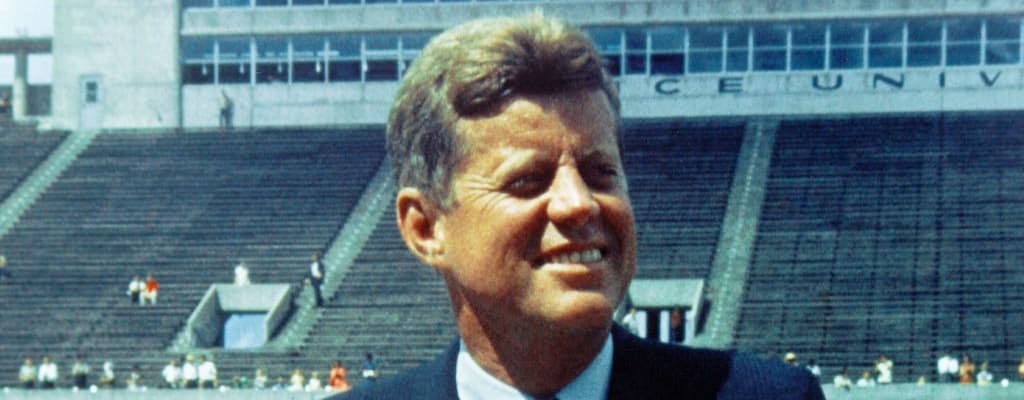the rest is history: Idiom Meaning and Origin
What does ‘the rest is history’ mean?
The idiom "the rest is history" is used to indicate that the subsequent events or outcome of a particular situation are well known or predictable, and therefore do not need to be explained further.

Idiom Explorer
The idiom "when all is said and done" means that after everything has been considered or taken into account, and all actions have been taken, the final result or outcome will become clear.
The idiom "turn out" means to have a specific result or outcome, often different from what was expected or predicted.
The idiom "turn of events" refers to an unexpected change or shift in a situation or sequence of events.
The idiom "tried and tested" means something that has been proven to be effective or reliable through previous experience or testing.
The idiom "track record" refers to a person's past performance, specifically their history of success or failure in a particular field or activity.
The idiom "time will tell" means that the truth or outcome of a situation will only become clear or known with the passage of time.
The idiom "time alone will tell" means that only the passing of time will reveal the truth or outcome of a situation, and that it is impossible to predict or determine it in advance.
The idiom "thus and such" is used to refer to an unspecified or indeterminate group of things or events. It is often used to suggest that the speaker cannot remember or does not wish to go into specific details about them.
The idiom "the sun sets on something" means that something is coming to an end or reaching its completion.
Unlocking the Enigma
The idiom "the rest is history" is a common phrase used in English to indicate that the outcome or events that followed are well-known or widely understood. It is typically used in a narrative context to suggest that the subsequent events are so significant or iconic that they require no further explanation. While the specific origin of this idiom is difficult to trace, its meaning and usage have become deeply ingrained in the English language.
The phrase "the rest is history" often highlights a turning point or pivotal moment in a story or historical event. It implies that what happened next had such profound consequences or was so widely known that it does not need elaboration. By asserting that the outcome is already known or understood, the idiom adds finality and certainty to the story.
One possible origin of the idiom can be traced back to ancient Greece. The Greek historian Herodotus, known as the "Father of History," frequently made use of a similar phrase in his writings. With phrases like "the rest, as they say, is history", Herodotus acknowledged the familiar outcome and significance of events even thousands of years ago.
Another potential origin of the idiom can be found in the field of journalism. In news reporting, it is common to provide a detailed account of events leading up to a significant moment. However, once the climax or turning point has been reached, reporters often shift their focus to the aftermath or consequences. This shift is often indicated by the phrase "the rest is history." By omitting further details, reporters assume that the audience is already aware of what came next.
Over time, "the rest is history" has become a cliché in storytelling and is often used to summarize the outcome of well-known events, historical or otherwise. Due to its widespread usage, the phrase has transcended specific contexts and can be applied to a variety of situations. It has become a cultural shorthand, evoking a shared understanding of what happened without the need for further explanation.
The idiom "ancient history" is closely related to "the rest is history." When someone refers to something as "ancient history," they mean that it is so far in the past that it is no longer relevant or significant. They are suggesting that the events being discussed belong to a different era and should no longer be considered when making decisions or judgments. The phrase can be used to dismiss past events as inconsequential or to discourage dwelling on the past.
The idiom "make history" is also connected to "the rest is history." When someone says they want to "make history," they are expressing a desire to achieve something significant or memorable. They want to be part of an event or action that will be remembered in the future. This idiom is often used to motivate or inspire others to aim for greatness and leave a lasting impact on the world.
The idiom "only time will tell" complements the idea behind "the rest is history." When someone says "only time will tell," they mean that the true outcome or consequences of a situation will be revealed in the future. While the immediate result may be unclear or uncertain, they believe that time will ultimately provide the answer. This idiom acknowledges the uncertainty of the present moment but suggests that the future will bring clarity and understanding.
Lastly, the idiom "all ends up" relates to "the rest is history." When something "all ends up" a certain way, it means that all the events and circumstances have led to a particular outcome. This phrase emphasizes the idea that the final result is the logical conclusion of everything that has happened before. It suggests that the previous events and choices were necessary and inevitable to reach the current state or outcome.
Ultimately, the idiom "the rest is history" encapsulates the power of succinct storytelling and the ability to convey a sense of familiarity and significance in just a few words. It allows speakers and writers to acknowledge the weight and influence of well-known events while leaving the specifics to the imagination of the audience. This idiom serves as a reminder of the enduring impact of certain events and implicitly invites further exploration and contemplation of the historical narrative.
Example usage
1. After inventing the telephone in 1876, Alexander Graham Bell made the first successful long-distance call, and the rest is history.
2. In 1969, Neil Armstrong became the first person to set foot on the moon, paving the way for future space exploration, and the rest is history.
3. Coca-Cola was invented in 1886 and quickly became a popular beverage worldwide, shaping the soda industry as we know it today, and the rest is history.
More "Origin" idioms



